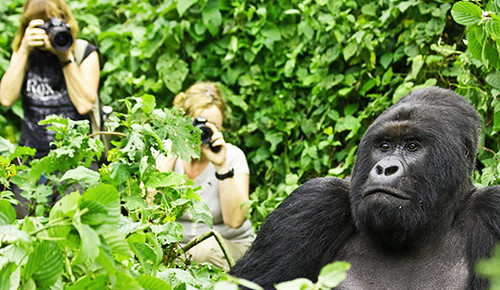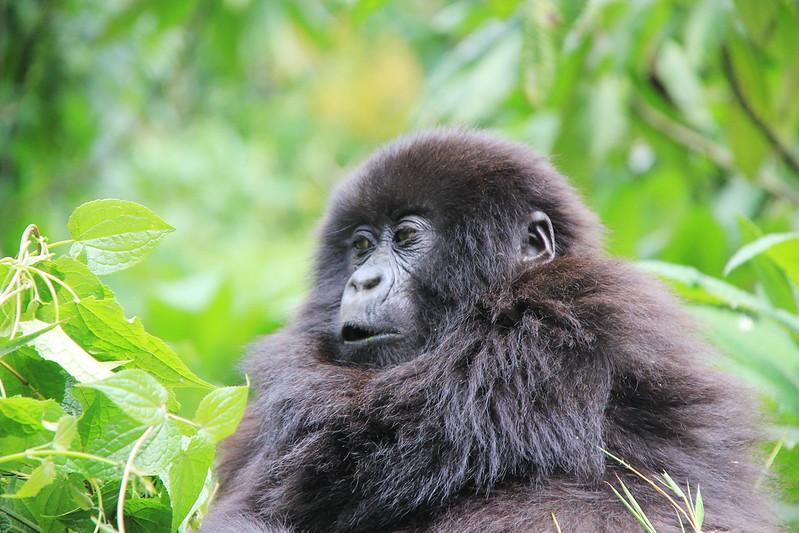How much does it cost to trek gorillas in Uganda? Your Complete Guide to Gorilla…
Can a Gorilla Be a Pet?
Can a Gorilla Be a Pet? Exploring the Challenges and Ethical Concerns.
Gorillas, with their intelligence, social complexity, and close genetic ties to humans, are fascinating creatures. This often leads some people to wonder: Can a gorilla be a pet? The simple answer is no—and for many good reasons.
While the idea of keeping a gorilla as a pet might seem intriguing to some, there are numerous legal, ethical, and practical challenges involved. Gorillas are wild animals with specific needs that cannot be met in a domestic environment. Here’s why:
Legal Restrictions on Gorilla Ownership
Most countries around the world prohibit private ownership of gorillas and other great apes. Gorillas are classified as endangered species under international conservation agreements, including the Convention on International Trade in Endangered Species of Wild Fauna and Flora (CITES).
Capturing, trading, or owning gorillas without permits is not only illegal but also contributes to the decline of wild populations. Legal protections are in place to ensure gorillas remain in their natural habitats or accredited sanctuaries where their welfare is prioritized.
Gorillas Are Wild Animals, Not Pets
Unlike domestic animals, gorillas are not bred or adapted to live alongside humans. Their natural behaviors, dietary requirements, and social needs are impossible to replicate in a household setting.
- Size and Strength, Adult gorillas can weigh over 300 pounds and possess immense strength. This makes them dangerous to humans, even unintentionally, as they are not accustomed to understanding human fragility.
- Dietary Needs, Gorillas consume a specific diet of fruits, vegetables, leaves, and bamboo shoots. Meeting these dietary requirements daily would be logistically and financially challenging.
- Social Structure, Gorillas are highly social animals that live in family groups. Removing them from their group causes stress, loneliness, and behavioral problems, which cannot be resolved in captivity.
![]()
Ethical Concerns of Gorilla Ownership
Keeping a gorilla as a pet raises significant ethical issues:
- Impact on Conservation, The illegal pet trade is a leading threat to gorilla populations. Capturing a baby gorilla often involves killing its entire family group, leading to further declines in already endangered populations.
- Welfare of the Gorilla, Gorillas suffer greatly in captivity, especially when isolated from their natural environment and social group. Without proper care and stimulation, they can develop physical and psychological health problems.
- Public Safety, Even well-meaning owners cannot guarantee their safety or the safety of others. Gorillas, though not aggressive by nature, can inadvertently cause harm due to their size and strength.
Alternatives to Gorilla Ownership
Instead of considering gorillas as pets, there are ethical and fulfilling ways to connect with these incredible animals:
- Gorilla Trekking, Experience gorillas in their natural habitat through guided trekking tours in Uganda, Rwanda, or the Democratic Republic of Congo. This not only provides an unforgettable experience but also supports conservation efforts.
- Support Conservation, Contribute to organizations that protect gorillas and their habitats, such as the Dian Fossey Gorilla Fund or World Wildlife Fund.
- Visit Sanctuaries, Accredited sanctuaries and zoos provide opportunities to learn about gorillas while ensuring their welfare.
Gorillas Belong in the Wild
Gorillas are not suitable pets, and keeping them as such is neither practical nor ethical. These intelligent and sensitive creatures thrive in the wild or in environments that closely mimic their natural habitats.
By respecting their nature and supporting conservation efforts, we can help ensure the survival of these remarkable primates for generations to come. Instead of trying to own a gorilla, consider ways to appreciate and protect them responsibly.


